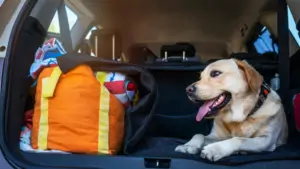If you’ve ever dreamed of exploring new places while doing what you love, a career as a traveling allied health professional might be calling your name. From CT techs to respiratory therapists and lab professionals, travelers fill vital roles in healthcare systems across the country.
But before you pack your bags and hit the road, there are a few key things to know to make sure your travel journey starts off strong. Whether you’re new to the idea or finally ready to take the leap, these tips will help you lay a solid foundation for a successful allied health travel career.
Gain Experience in Your Field
Before starting your traveler journey, you’ll need a solid foundation of experience. On average, most facilities require at least two years of experience in your specialty before allowing you to take on a travel contract. This ensures you have the confidence and skills to adapt quickly in new settings and hit the ground running.
That said, some facilities are flexible, especially in high-demand areas or for certain modalities. If you’re not sure whether your background qualifies, talk to a recruiter. They can help match you with roles that fit your current experience level and career goals.
If you’re still building experience, use this time wisely. Seek out diverse cases, volunteer for cross-training opportunities, and build strong references. Every patient interaction and skill you develop now will make you more marketable when you’re ready to travel.
Keep Allied Health Travel Licenses and Certifications Current
Licenses and certifications are the backbone of your professional credentials. Stay proactive about renewing certifications like BLS, ACLS, or PALS, and be aware of any specialty-specific credentials you might need.
When it comes to state licenses, planning is everything. Each state has different timelines and requirements, and some licensures can take weeks — or even months — to process. If you already have a list of states you’d like to explore, research their licensing requirements and average processing times.
A smart strategy is to map out your year and decide where you want to travel and when. Then, talk with your recruiter to determine when to apply for new licenses so you’re ready to accept assignments when the right opportunity comes along.
Dust Off the Resume
Your resume is super important to getting you the best allied health travel jobs. When updating your resume, include charting systems you’ve used, unit size, and patient ratios if applicable. Make sure to note whether each role was permanent or a travel assignment, as this helps hiring managers understand your adaptability.
List all your licenses and certifications, including expiration dates, and add educational details such as schools attended, graduation dates, and degrees earned. Don’t forget a short professional summary at the top. This should include your goals, key achievements, and unique qualities that set you apart.
When describing your experience, go beyond general duties. Instead of saying “assessed patients and administered medications,” highlight specific skills like “managed ventilators,” “performed advanced wound care,” or “handled critical lab diagnostics.” The more detail you provide, the more your resume reflects your expertise and readiness for travel assignments.
With competition growing in the travel healthcare market, the details matter. A well-written, detailed resume can make the difference between getting an interview and being passed over.
Keep an Open Mind
Flexibility is one of the greatest strengths you can have as a traveler. While it’s important to know your priorities, keeping an open mind can lead to some of your most rewarding assignments.
Some of the best contracts are in locations you might never have considered. Hidden gems exist all over the country, from small coastal towns to mountain communities. Each experience offers something new like different patient populations and local adventures.
Connect with Other Travelers
No one understands the travel lifestyle quite like another traveler.
Join Facebook groups, Reddit threads, or traveler forums, and don’t hesitate to ask your recruiter to connect you with others who’ve worked in the same facility or region. Most travelers are happy to share advice, from housing recommendations to first-day tips.
Networking helps you feel part of something larger and can even lead to your next great opportunity.
Pick a Great Recruiter and Agency
Finally, one of the most important factors in your success is choosing the right recruiter and agency. Your recruiter should be your greatest advocate, listening to your needs and matching you with the best assignment.
Do your research before signing with an agency. Look for traveler testimonials and comprehensive benefits. When you find a recruiter who truly supports you, you’ll have a partner who makes the entire travel experience smoother and more rewarding.
Travel with Ventura MedStaff
Starting your allied health travel career is an exciting step toward professional growth and personal adventure. With the right preparation, you’ll be ready to take on new challenges and explore opportunities across the country.
Your journey starts with one decision: to go. Once you do, the rest is an adventure waiting to unfold. Contact a recruiter today to get started.






